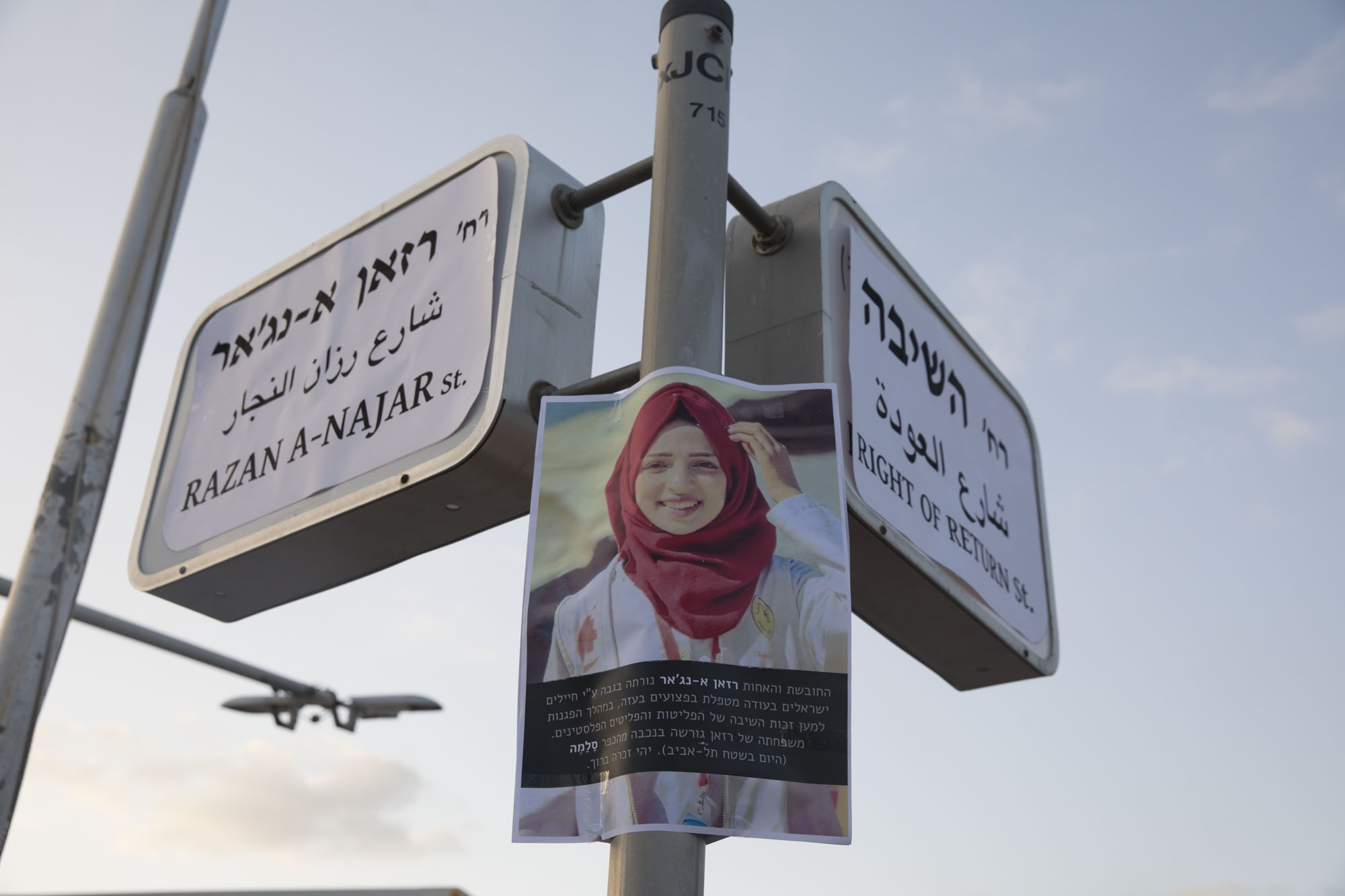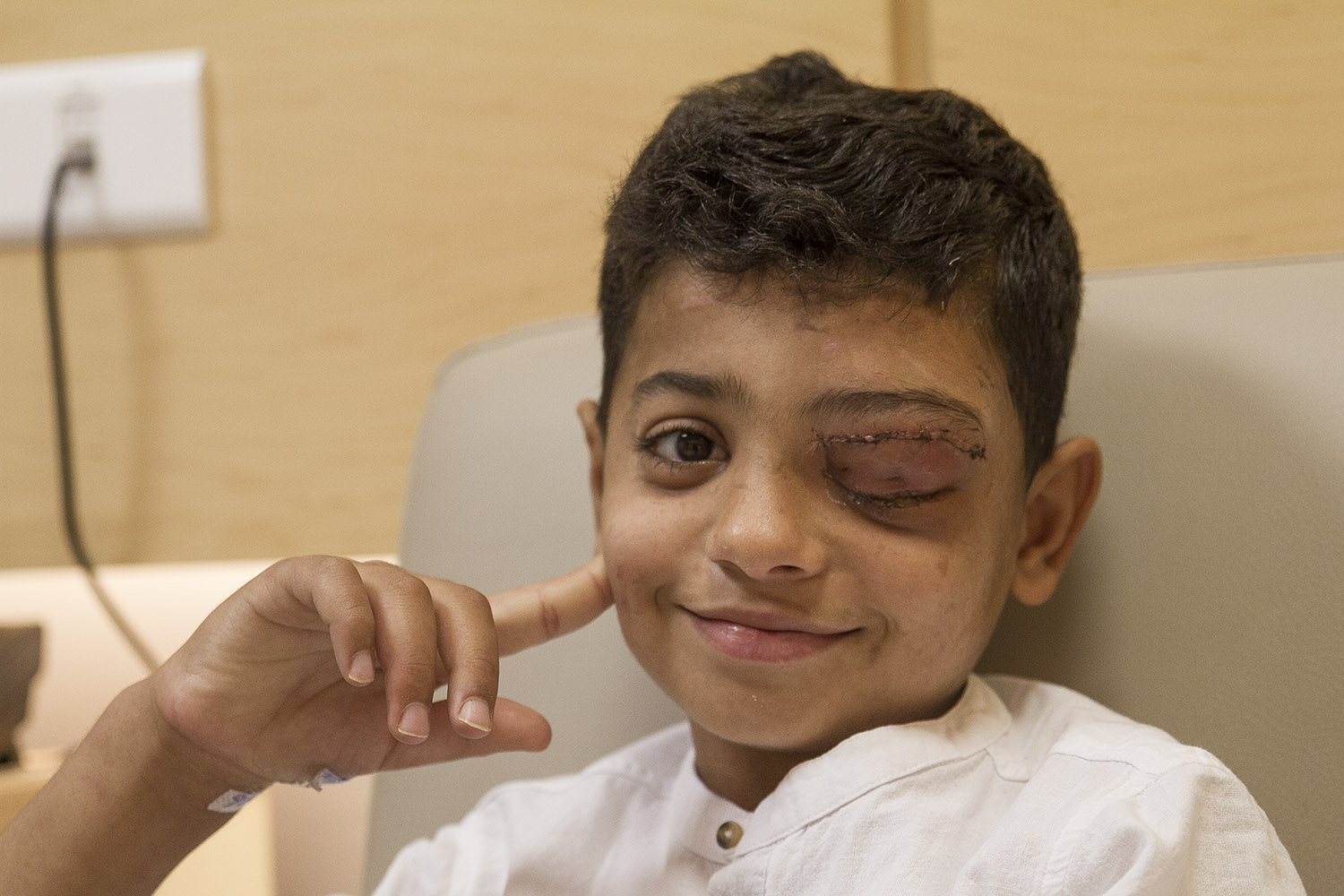Category: Gaza
-
Israeli and international protesters demonstrated at Gaza fence in solidarity with The Great Return March
20th July 2018 | Close to the Gaza fence Israeli and international protesters demonstrated at Gaza fence in solidarity with The Great Return March On the 20th of July, Friday afternoon, a group of anti-zionist Israeli and international solidarity activists approached the Gaza siege fence at the same time that Gazans gathered by the fence on…
-
Salama remembers Razan
In response to a call for solidarity from Gazan women, a Jewish activist group dubbed “Return” gathered to hold a memorial for Razan AlNajar, at the location of her village of origin, Salameh. While thousands of women marched towards the border in the Saja’iya area in Gaza, the activists held a ceremony honoring Razan and the protesters…
-
“I just want him to be a normal boy again’: Gaza family appeal for urgent help to support treatment of 11 year old Mahmoud who was shot in the face by an Israeli sniper
Mahmoud Sawalhi is an 11 year-old boy from Gaza who was shot in the head and the shoulder with live ammunition by an Israeli sniper on the 14th May Great Return March protests. A bullet passed through his eye and out of the top of his head, and he lost both his eye and…



